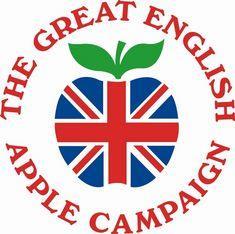
The English apple industry is being backed by its biggest self-financed PR and promotion campaign for many years this season. English Apples & Pears (EAP) has invested £150,000 of growers’ money into a high-profile radio advertising push, marking a return to direct consumer marketing after a decade away. The FPJ Supplement talks to EAP’s Adrian Barlow about the reasons behind the change of direction.
As an industry, English apples may not have the image of being the most innovative, but in fact its PR and promotions have frequently led the way for the produce industry.
TV, radio and poster work in the 1980s gave out strong emotional messages to the nation, while celebrities such as Paul Daniels - better loved at the time than now admittedly - have endorsed home-grown fruit. Not many of us have forgotten Eve, who seduced the national press and ensured a good few column inches in the late 1990s. And the ‘kids go free’ concept seems run-of-the-mill now, but according to Barlow, the English apple industry was the first to take that in-store too, with the support of all major multiples.
As the purse strings tightened, however, pressure built on the industry to find new ways of promoting itself, and the marketing organisations decided that, largely, they should take on responsibility for the in-store promotional activities themselves.
While that has worked to an extent, there has been a groundswell of opinion amongst growers that the time is now right for some generic work for English apples to be reintroduced. This year, therefore, the work of the marketing desks will be complemented by a month-long season launch on Classic FM (radio and digital TV) in an attempt to hit the core supporters of English top fruit with the strong come-and-get-me message and entice a few million floating voters to explore the home-grown apple offer in their local supermarket.
“It is easy to say that we know there is a large band of English apple supporters out there and fail to recognise that there is a need to continually top up their perceptions of our fruit,” says Barlow.
“We looked at various options, with the view that it is vital that we talk to as many supporters as possible, people with a natural affinity with the English apple. But we also wanted to reach out to a wide range of potential consumers, people who for no particular reason are not buying English apples.”
Classic FM fitted the bill, due to its eclectic audience make-up, and the three-week campaign began in force on September 26 - although it kicked off a week earlier on the radio station’s TV channel. During its run, 174 slots will be filled by the sounds of a cross-section of the nation’s consumers crunching into an English apple, before extolling its virtues in a variety of accents. Through the ads, and pop-ups on the Classic FM website, listeners, viewers and browsers have been told that their home-grown fruit is back in-store, that it tastes good and that it can be found by looking for the Union Jack label.
Far from being merely a jingoistic call-to-action, Barlow says the key to the ad is that it is inclusive of consumer sectors that do not choose their fruit due to national pride. “Our message is that the English apple is not just a product for a certain sector of British society, it is available to be enjoyed by everyone,” he says. “We are setting great stall by this approach. The ads will alert everyone that English fruit is now available and we believe it will motivate a lot of people who would have bought English apples anyway to go to the shops and make repeat purchases. We also think that it will encourage people who would not have bought English apples to discover what they have been missing.”
Such a campaign will fail, of course, without in-store backing, and Barlow says the multiples have been extremely supportive. Both Tesco and Sainsbury’s have filmed ads, Tesco’s for in-store usage and Sainsbury’s for use in its national Jamie Oliver inspired TV campaign, and all of the major retailers have shown commitment to flag up the fruit in-store. “It is vital that the retailers have apples on-shelf at the right times to satisfy the additional demand that the ads will create,” Barlow says.
The timing of the launch in itself - the latest ever - represents a serious rethink of marketing strategy. The change of perspective should allow the campaign to hit the ground running, and eradicate any stuttering through the first few weeks of the season, which naturally can feature supply problems. “For a number of years, we launched the English season at the beginning of August when the first apples were available,” says Barlow. “But we have concluded that this was too early. While Discovery is an important variety, we want to launch when there is sufficient volume of availability. We were putting out too strong a message too early.”
The inevitable consequence of this was that consumers were regularly being disappointed, an emotion that should not be in evidence this time around. “We don’t want to entice consumers into the apple category only to find that English fruit is not available for them. While we are not able to ensure that there will not be fruit from other sources in competition, we will be making a big noise about our new-season varieties.”
The launch activities will be supplemented as the season progresses by initiatives to push certain varieties as they come on-stream. The Bramley Campaign will continue on its merry way, after many years of considerable success, while Braeburn, Cameo and Greenstar have been singled out for special attention.
Cameo, for instance, will be pushed in-store for the first time pre-Christmas. Barlow says tastings for food journalists and in-store samplings are on the agenda.



